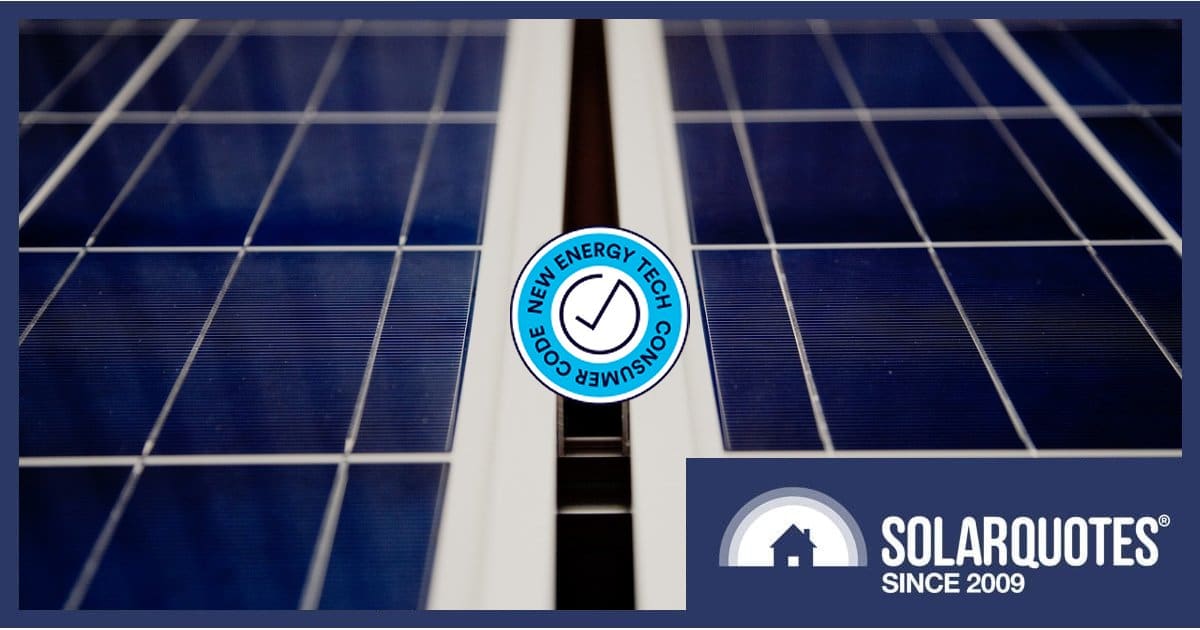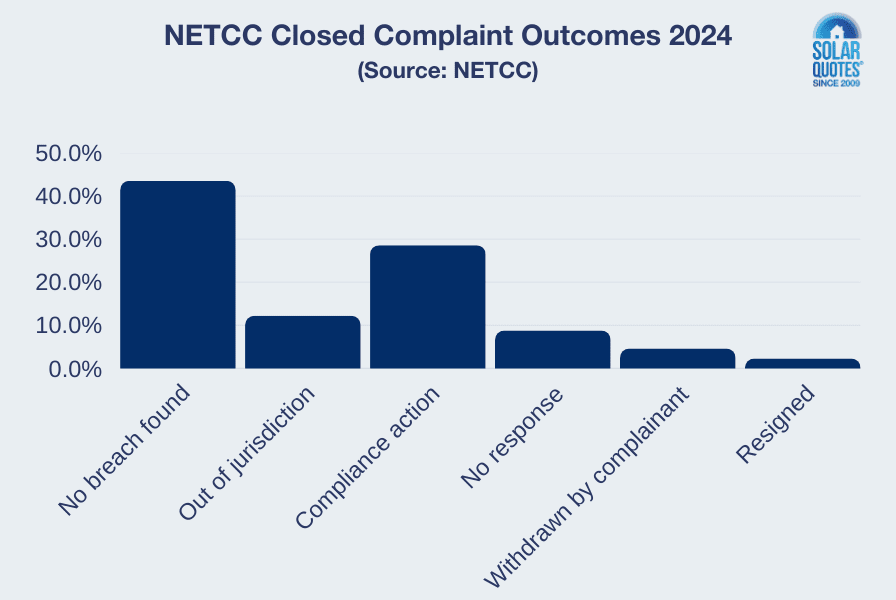
What did Australia’s New Energy Tech Consumer Code achieve last year in terms of compliance activity – and what the heck is the NETCC anyway?
The NETCC is a (sort of) voluntary code of conduct that is meant to help protect Australian consumers buying ‘new energy tech’ such as solar power systems, battery storage and EV chargers.
The NETCC replaced the Clean Energy Council’s (CEC’s) problematic Approved Solar Retailer (ASR) program in 2023. All ASRs, regardless of their competency, automatically became New Energy Tech Approved Sellers on the switchover in February 2023, but had to ensure they met NETCC requirements by the start of August that year.
The NETCC is overseen by representatives from various industry and consumer bodies, collectively known as the NETCC Council. The CEC still has a role as administrator and is responsible for the day-today operations of the program.
As for more on what it is and isn’t, we explain the NETCC in further detail here.
Since it kicked in, we haven’t heard a lot about the program – last year there were only 6 news items released. But information on compliance activities is kept up to date and we now have a better picture (albeit incomplete at this stage) of what occurred on that front in 2024. There should be a more detailed report released at some point.
Approved Sellers And Applications
As at the end of last year, there were 1,682 approved sellers participating in the program. At the end of December 2023, there were 1,572 signatories.
The program received 461 applications for Approved Seller status in 2024, with 9.8% rejected; which works out to around 45 applications binned. There’s no breakdown provided about the rejections. The key reasons for rejection in 2023, the year of transition, were a failure to provide required information and/or not paying annual fee invoices within required timeframes.
Rejections can be appealed, but the rejected party needs to part with $750 for the case to be reviewed.
Complaints And Outcomes
There were 275 complaints lodged against Approved Sellers in 2024. The month with the most complaints was December with 43 – the highest since the NETCC came into effect.
262 complaints were closed last year:
- No breach found: 114
- Out of jurisdiction: 32
- Compliance action: 75
- No response: 23
- Withdrawn by complainant: 12
- Resigned: 6
What happened in the “no response” cases isn’t detailed, but where cases were “out of jurisdiction”, referrals are usually made to the complainant’s relevant consumer protection authority, dispute resolution body or regulator.
There’s no data available yet detailing the compliance actions for the full year, although the nature of breaches for closed cases are broken down in the monthly reports.
Expulsions And Suspensions
2024 saw six expulsions from the program and one suspension. In 2023, there was one expulsion and zero suspensions.
You can see who was kicked out of the program and why on the NETCC compliance page.
Approved Seller Status Is Not A Guarantee
On each of our solar installer review pages, there’s a flag noting if the firm is an NETCC signatory. This is provided as general information, not as a recommendation. As with the previous ASR program, a company being a signatory does not guarantee a good installation or customer experience; nor will it necessarily help you get refund, compensation or fix if things go pear-shaped.
And there are some excellent installers who may have chosen not to participate in the program for one reason or another – such as cost1, admin overload, or a general dislike of the CEC. But regardless of how they feel about the NETCC or the CEC, for many installers the Approved Seller status is a must-have as it is a requirement of some state incentive schemes, such as Victoria’s Solar Homes program.
Sorting out the wheat from the chaff – Approved Seller or not – can be challenging. If you’re looking some added reassurance before investing your hard-earned dollars in a solar or/and battery installation, SQ has your back. Check out the SolarQuotes Good Installer Guarantee.
Footnotes
- The NETCC application fee is currently $480 and there’s an annual fee of $800 – $10,000 based on total value of covered products, systems and services a business has sold over the previous 12 months. ↩


 RSS - Posts
RSS - Posts



Speak Your Mind